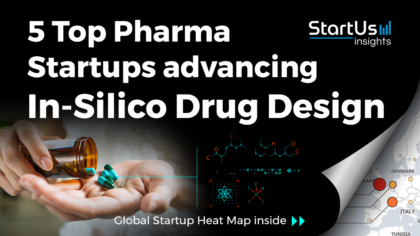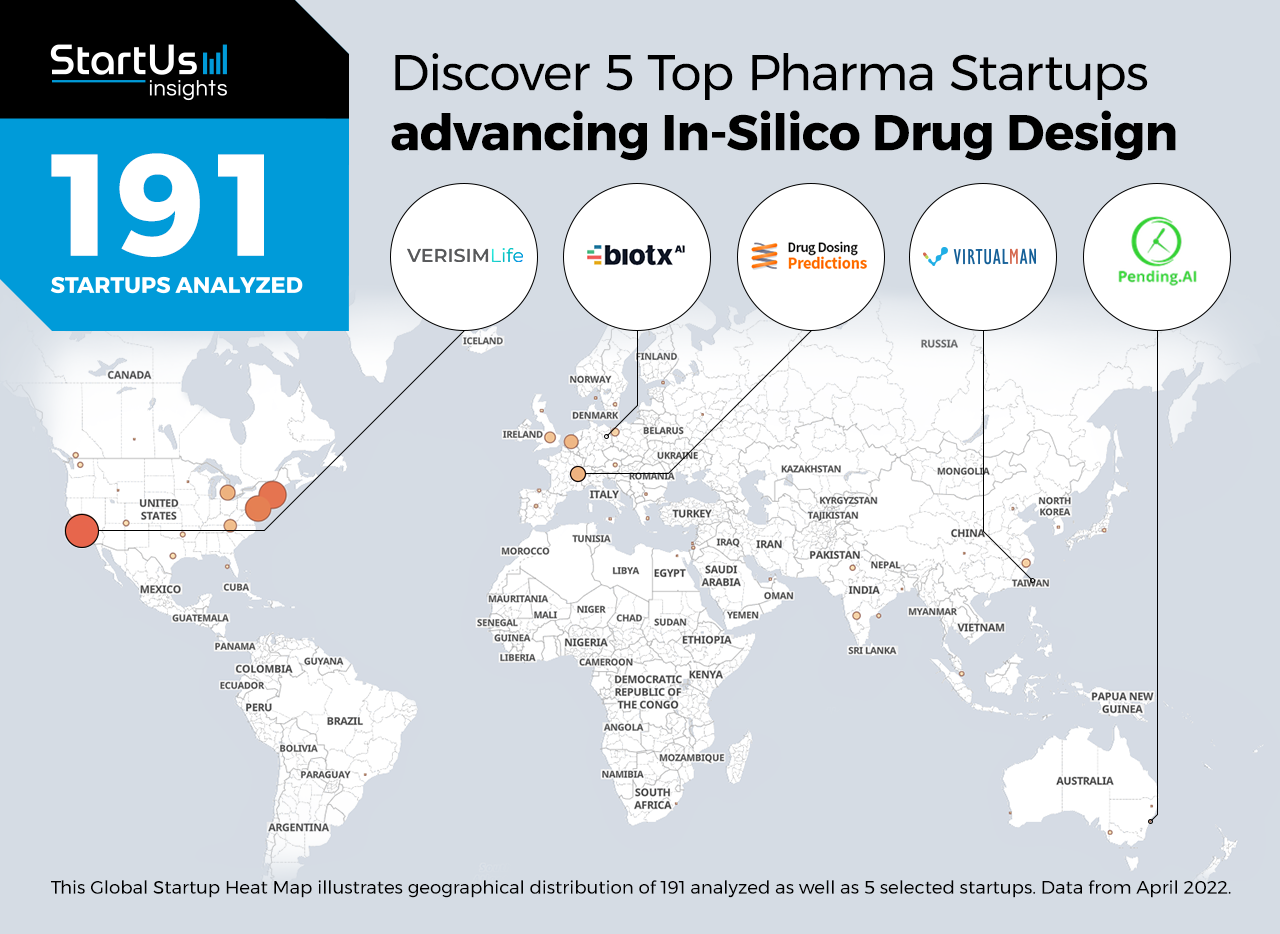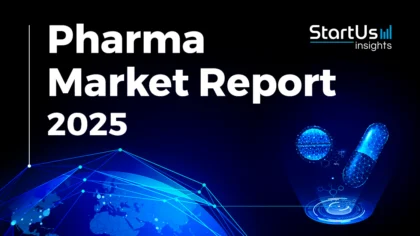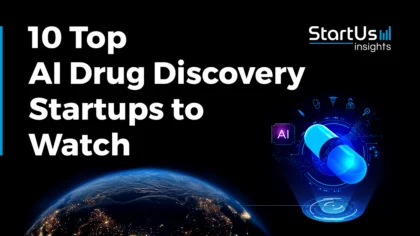Staying ahead of the technology curve means strengthening your competitive advantage. That is why we give you data-driven innovation insights into the pharma industry. This time, you get to discover five hand-picked pharma startups advancing in-silico drug design.
Out of 191, the Global Startup Heat Map highlights 5 Top Pharma Startups advancing In-Silico Drug Design
The insights of this data-driven analysis are derived from the Big Data & Artificial Intelligence (AI)-powered StartUs Insights Discovery Platform, covering 2 093 000+ startups & scaleups globally. The platform gives you an exhaustive overview of emerging technologies & relevant startups within a specific field in just a few clicks.
The Global Startup Heat Map below reveals the distribution of the 191 exemplary startups & scaleups we analyzed for this research. Further, it highlights five drug synthesis startups that we hand-picked based on criteria such as founding year, location, funding raised, and more. You get to explore the solutions of these five startups & scaleups in this report. For insights on the other 186 in-silico drug design solutions, get in touch with us.
Pending AI offers Structure-based Drug Design
Founding Year: 2018
Location: North Wollongong, Australia
Partner with Pending AI for De-novo Drug Development
Australian startup Pending AI provides an AI-based software platform for de-novo drug development. The startup trains its software based on large federated data sets containing millions of compounds, reactions, and proteins. Pending AI’s software uses computational growth algorithms to design and optimize the chemical structure of proteins to identify compounds suitable for clinical testing. This allows pharmacologists to deploy high-throughput experimentation and better plan drug synthesis.
DDPred provides Drug-Drug Interaction Prediction
Founding Year: 2016
Location: Lyon, France
Collaborate for Pharmacokinetic Predictions
French startup DDPred develops an online tool to predict pharmacokinetic interactions. It uses an in-vivo static mechanistic model for the analysis of drug disposition. The tool simulates interactions of cytochrome P450 enzymes, which influence patient drug response, with drug substrates. This enables researchers to identify relevant drug interactions during studies to conduct and evaluate the possibility of adverse reactions.
VeriSIM Life builds Disease-specific Biosimulation Models
Founding Year: 2017
Location: San Francisco, US
Funding: USD 22 M
Partner for Virtual Drug Development
US-based startup VeriSIM Life offers AI-enabled biosimulation models. Its software, BIOiSIM, is a disease-specific simulation platform that replaces animal drug testing with AI by simulating how drugs interact in animals. Biosystem simulations enable researchers to test more potential drug molecules at the same rate as animal testing, providing an efficient alternative. The startup’s biosimulation model also improves the accuracy of drug synthesis for personalized patient treatment.
Biotx AI enables Biomarker Prediction
Founding Year: 2017
Location: Potsdam, Germany
Funding: USD 2,2 M
Use this solution for Precision Medicine
German startup Biotx AI provides predictive biomarkers for the planning and synthesis of precision medicine. The startup’s drug discovery platform identifies significant patterns from wide genomic data. Its AI algorithms select a few complex combinations of genetic variants for testing, facilitating drug target identification and development. Further, the platform monitors individual responses to drug action to stratify patients during clinical studies.
VIRTUALMAN facilitates AI-driven Drug Development
Founding Year: 2018
Location: Taipei, Taiwan
Funding: USD 30 M
Reach out for Drug Screening
Taiwanese startup VIRTUALMAN accelerates drug development. It develops an AI-based auto-feature-extraction model to identify potential drug candidates based on their absorption, distribution, metabolism, excretion, and pharmacokinetics (ADME/PK). The model screens drugs that fit the ADMET/PK standards and predicts which drug is likely to clear the pre-clinical phases. It also mentions the reasons for the failure of certain compounds in future pre-clinical tests.
Discover more Pharma Startups
Pharma startups such as the examples highlighted in this report focus on personalized medicine, digital therapeutics, drug screening, artificial intelligence, and advanced analytics. While all of these technologies play a major role in advancing the pharma industry, they only represent the tip of the iceberg. To explore pharma technologies in more detail, simply let us look into your areas of interest. For a more general overview, download our free Pharma Innovation Report to save your time and improve strategic decision-making.









